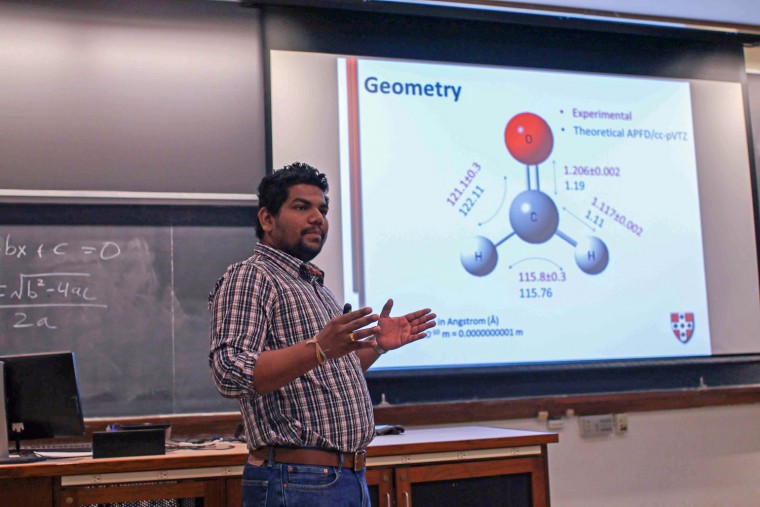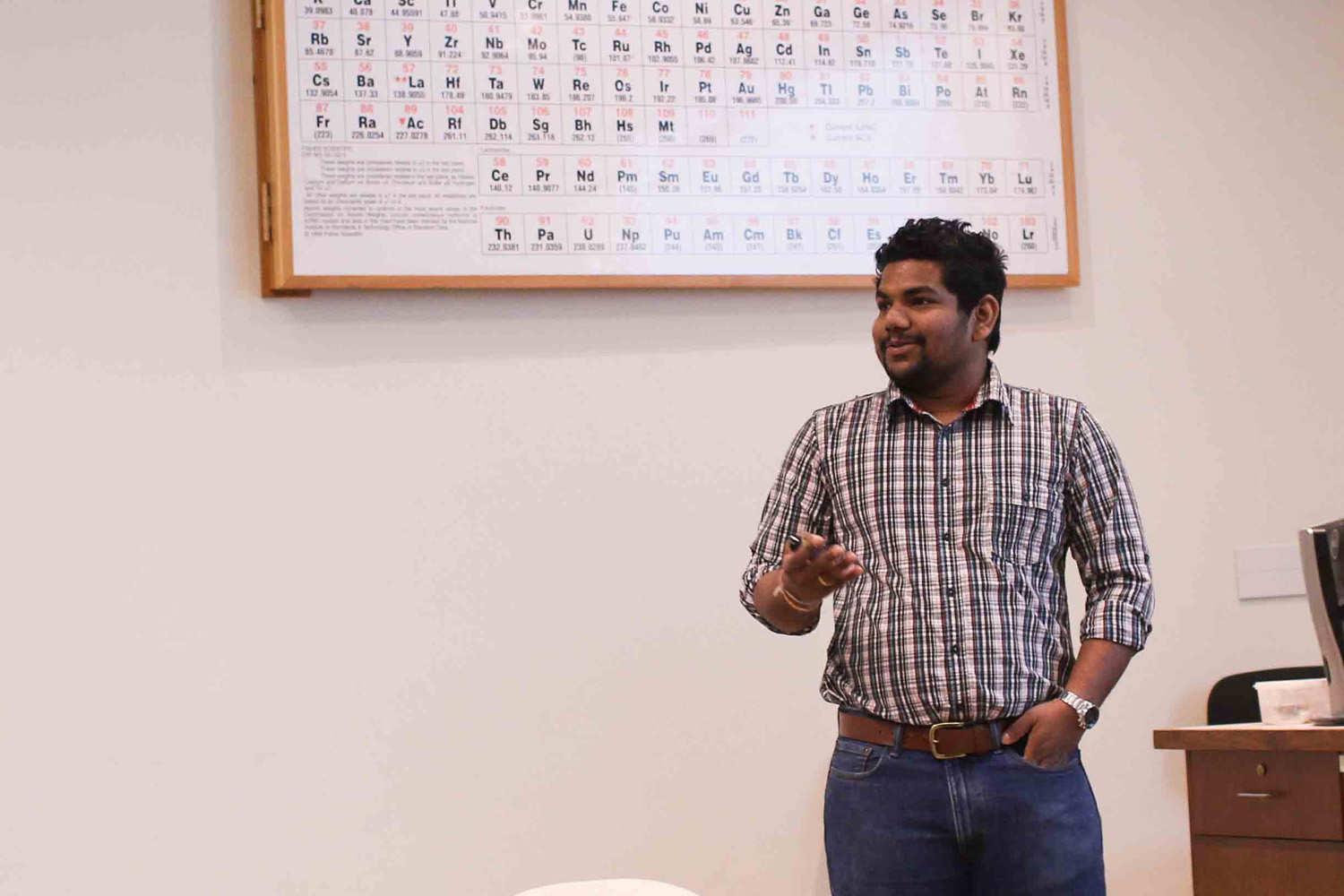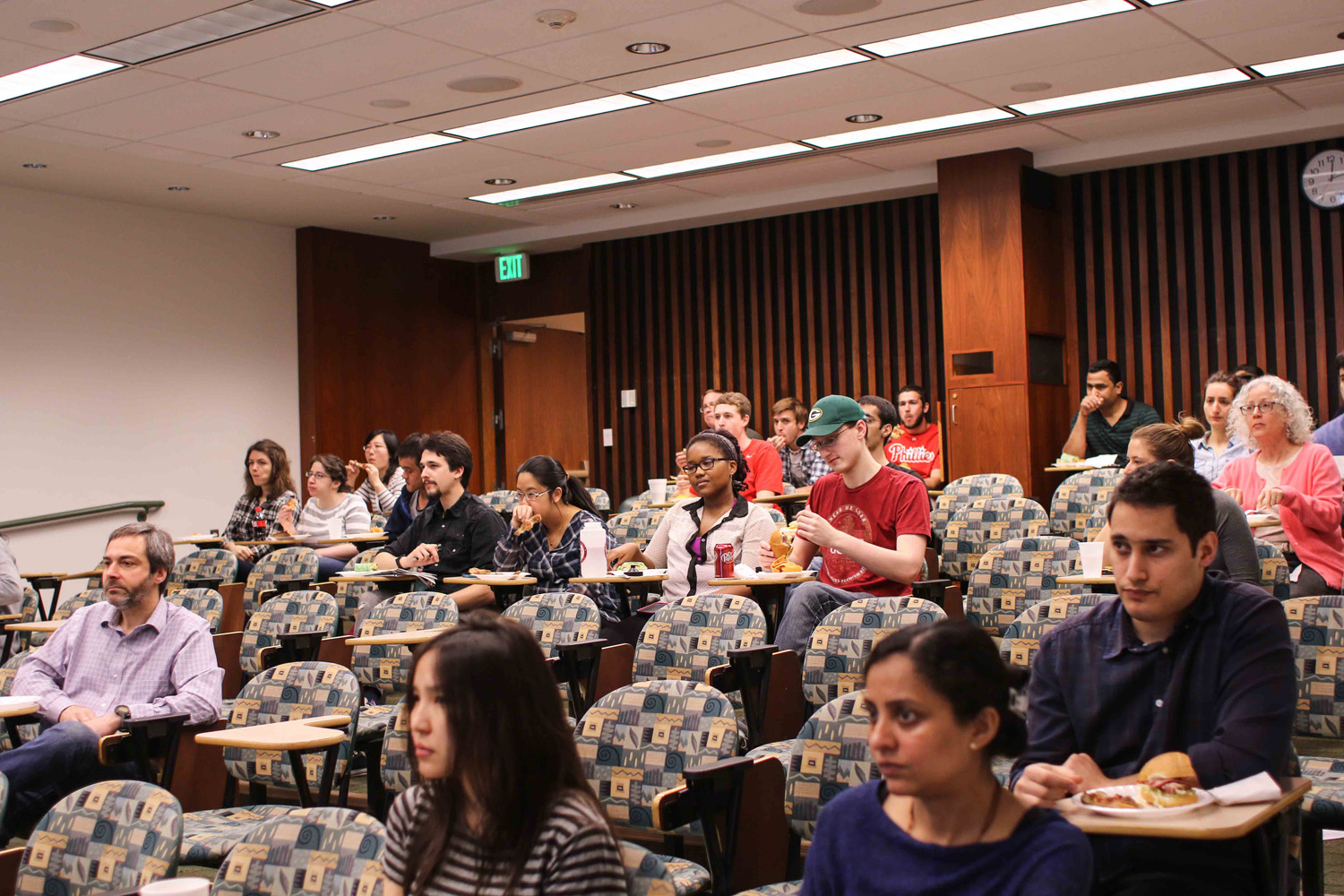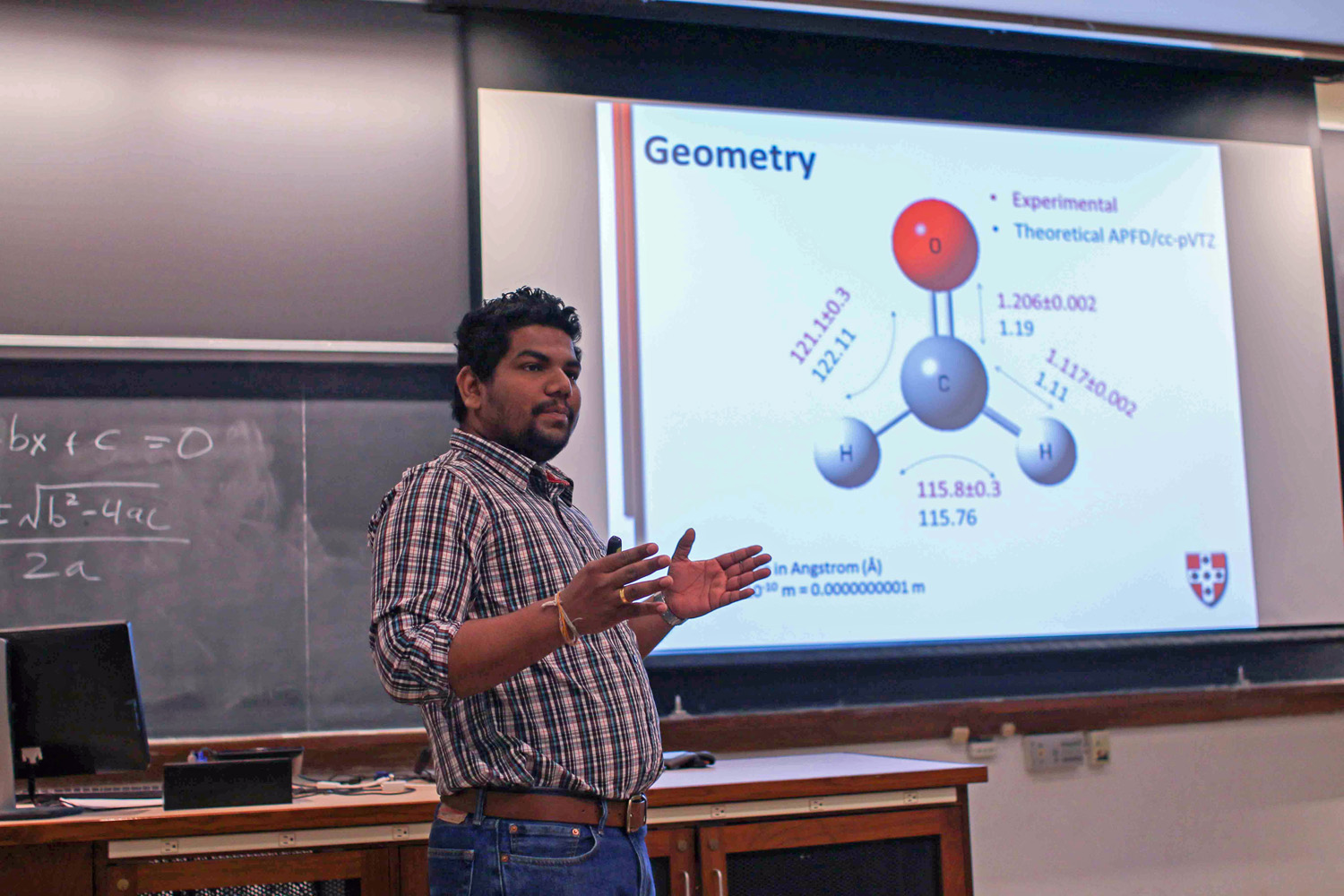Grad Student Ranasinghe Speaks on Computational Chemistry

Duminda Ranasinghe, a Ph.D. candidate in Chemistry, spoke April 16 in Exley in the fourth event of the Graduate Student Speaker Series. (Photos by Hannah Norman ’16.)




Duminda Ranasinghe, a Ph.D. candidate in Chemistry, spoke April 16 in Exley in the fourth event of the Graduate Student Speaker Series. (Photos by Hannah Norman ’16.)


